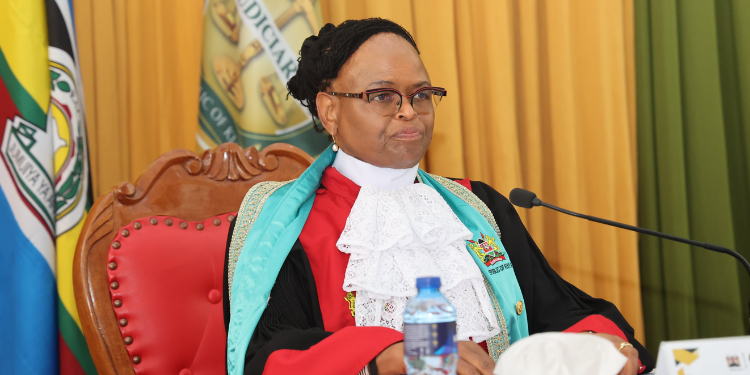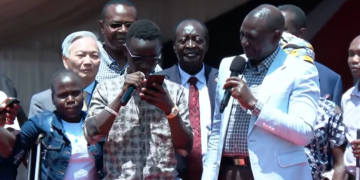Judicial Service Commission (JSC) has acknowledged allegations of bribery against a Judge circulating widely on social media.
In a statement on September 22, the Commission said it is mandated under Articles 172 and 168 of the Constitution to safeguard the independence and accountability of the Judiciary.
“Pursuant to Articles 172 and 168 of the Constitution, the JSC is mandated to promote and safeguard the independence and accountability of the Judiciary,” read part of the statement.
“In this regard, the Commission has commenced investigations into the matter and reaffirms its unwavering commitment to uphold integrity and ensure accountability within the Judiciary, in full adherence to the rule of law.”
JSC assured members of the public that due process will be followed as the inquiry proceeds, noting that the outcome will guide further action in line with constitutional provisions.
JSC Gives Update on Bribery Allegations Against Judge
In recent days, several judges have come under sharp scrutiny over allegations of bribery and corruption said to have influenced court judgments.
Recently, Standard Group Journalist Collins Kweyu was detained on Friday, September 19, after following up on allegations of graft involving a Migori-based judge.
Kweyu was investigating claims that the magistrate had received a bribe to influence a ruling in a land dispute.
According to the Crime Journalists Association of Kenya (CJAK), Collins Kweyu was detained after seeking comments from a judicial officer in a corruption matter.
Also Read: How JSC Erred in Petition to Remove Supreme Court Justice Lenaola
In a statement, CJAK said the police arrested Collins Kweyu after a complaint was filed by a state officer.
“Using state machinery to silence a journalist investigating possible corruption within the judiciary is an attack not only on press freedom but on the very rule of law itself. Arresting him on a Friday evening to ensure prolonged detention only deepens the suspicion of bad faith,” CJAK Secretary-General Brian Obuya said.
CJAK condemned the arrest of Standard Media Group journalist Collins Kweyu, calling it an attack on press freedom and the rule of law.
“In journalism, sources are sacred. Any attempt to compel Collins Kweyu to reveal his sources is a grave infringement on press freedom and a direct violation of the constitutional protection of journalists in Kenya,” CJAK said in their statement.
Also Read: JSC Takes Stand on Petitions to Ouster Martha Koome and Supreme Court Judges
Process for Investigating a Judge
- Receiving Petitions: The JSC receives complaints against judges from the public or initiates investigations on its own motion. These complaints can be filed via email, mail, or by delivering them in person at the JSC offices.
- Reviewing the Complaint: The Commission acknowledges receipt of the petition and then reviews it to see if it discloses a valid ground for removal as defined by the Constitution.
- Committee Appointment: If the petition is found to have merit, the JSC may appoint a committee of its commissioners to consider the allegations and report its findings back to the full JSC.
- Decision to Forward to the President: Based on the committee’s findings, the JSC decides whether to send the petition to the President.
- Presidential Action: Upon receiving the petition from the JSC, the President suspends the judge from office and appoints a tribunal to inquire into the complaint.
- Tribunal and Appeal: The appointed tribunal conducts the inquiry, and if the judge is found to be in breach of conduct or otherwise unfit, they may be removed from office. A judge aggrieved by the tribunal’s decision can challenge it in the Supreme Court
Follow our WhatsApp Channel and X Account for real-time news updates.





















































![Senator Allan Chesang And Chanelle Kittony Wed In A Colourful Ceremony [Photos] Trans Nzoia Senator Allan Chesang With Channelle Kittony/Oscar Sudi]( https://thekenyatimescdn-ese7d3e7ghdnbfa9.z01.azurefd.net/prodimages/uploads/2025/11/Trans-Nzoia-Senator-Allan-Chesang-with-Channelle-KittonyOscar-Sudi-360x180.png)
























The judges of the independent judiciary are integral and important members of the civil services providers who need our confidence and trust. Their honesty and uptitudeness will make their fruitiful servanthood rewardifull to the government of the republic of kenya and the peoples of the republic of kenya.